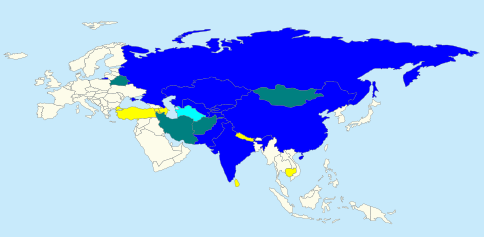900 319 0030
enquiry@shankarias.in
What is the issue?
What is the history of SCO?

Blue: Member countries, Green: Observers Countries, Yellow: Dialogue Partners
Why is SCO critical for India?
What are the political equations within SCO?
What are the aspects to lookout for India and Pakistan in SCO?
How does the future of SCO look?
Source: The Hindu